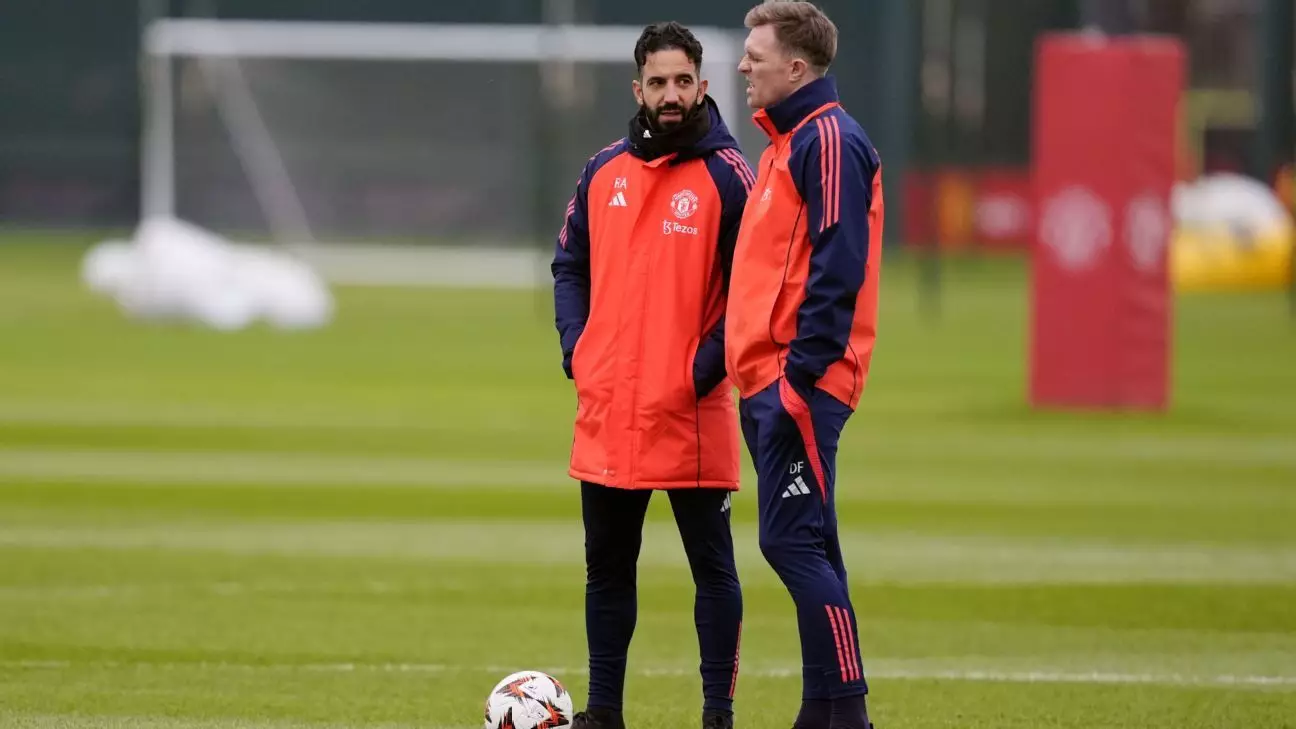In the fast-paced world of football management, transitions are commonplace, yet they often carry hefty implications for a club’s trajectory. This is particularly evident in the recent upheaval at Manchester United, where the sudden departure of sporting director Dan Ashworth has raised eyebrows. Ruben Amorim, recently appointed as the manager, approached this unexpected change with a mix of realism and optimism. The timing of Ashworth’s exit could not have been worse; just five months into his tenure, Ashworth’s role was anticipated to be instrumental under Sir Jim Ratcliffe’s leadership. His exit has left a palpable void, compelling the club to re-evaluate its recruitment strategies and overall vision.
Amorim expressed the challenges inherent in such a situation, acknowledging that while Ashworth was a crucial figure in the setup, the overarching objectives and support from ownership remain steadfast. This resilience is vital, as instability at the top often breeds uncertainty throughout the ranks, affecting player morale and performance. Amorim’s confidence in the broader vision underscores a fundamental truth in competitive sports: the show must go on, regardless of the noise surrounding personnel changes.
With Ashworth’s departure, technical director Jason Wilcox is poised to assume command of the recruitment process. His elevation signifies a moment crucial for United as they now look toward the January transfer window. This period promises to be a critical juncture, not only for bolstering the squad but also in realigning the team’s competitive edge amid growing scrutiny. Reports have indicated that the club is open to negotiations regarding several first-team players, a decision that reflects both a willingness to adapt and a recognition of the need for fresh talent as well as potential financial gains.
Under Amorim’s guidance, there is an emphasis on not just incoming transfers but also refining existing squad dynamics. As a new managerial figure, Amorim’s approach involves a detailed assessment of player capabilities, emphasizing the importance of forming a cohesive unit and establishing defined roles. He has made it abundantly clear that performance standards would be paramount and that those who are unable to adapt may find themselves sidelined. The emphasis on aligning player profiles with the club’s tactical vision cannot be overstated, particularly as Amorim attempts to impose his style within a newly inherited environment.
As Manchester United prepares to clash with Viktoria Plzen in the Europa League, the stakes are higher than ever. A favorable result in this encounter is not just a matter of pride; it holds implications for their progression in the tournament and the potential to avoid the headaches of a playoff in February. The urgency of accumulating points, coupled with the need to translate their domestic form into European success, is a clear reflection of the mounting pressure on Amorim and his squad.
Viktoria Plzen presents a significant challenge, as they are on a formidable run at home. United’s recent struggles on the road in European competition have only added to the tension surrounding this fixture. Success in such matches is essential for not just the current season but also for long-term momentum, which is necessary to instill confidence among the players and the fanbase alike. Amorim’s belief in the quality of his squad is evident; however, ensuring that this belief translates into tangible results will be critical for his tenure.
As United proceeds through a challenging transitional phase, Amorim’s commitment to nurturing a strong club culture cannot be overlooked. He acknowledges that every detail, from player recruitment to in-game tactics, counts towards building a successful team. This necessitates time and clarity in the club’s strategic approach, ensuring that each player understands and embodies the vision the new manager has for the team.
Ultimately, the road ahead for Manchester United may be fraught with uncertainties, but with a clear focus on cohesion, strategic player management, and an unwavering commitment to their objectives, the club has the potential to navigate this storm successfully. Continuous evaluation of player performance, combined with an astute transfer strategy, could very well set the foundation for sustained success on both domestic and European fronts.

